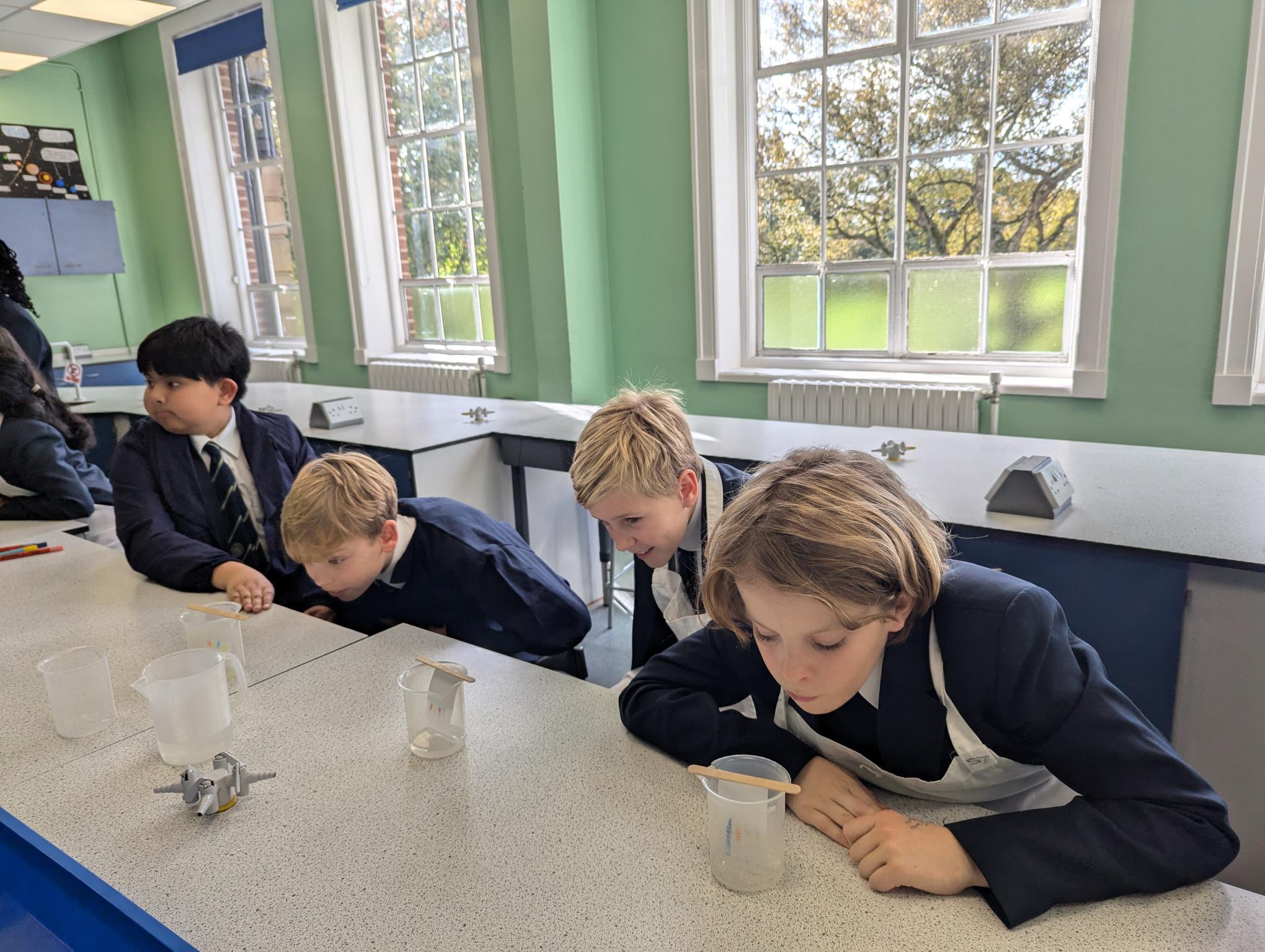
science club get forensic

Our scientists get hands on with Ink Chromatography!
It's another fantastically forensic week for extracurricular Year 7 Science Club, as they develop their scientific investigative skills still further with a workshop at lunchtime today on the forensic technique of Ink Chromatography.
Forensic scientists are able to use ink chromatography to solve crimes by matching documents or stains found at a crime scene to the marker or pen that belongs to a suspect. They analyse the unknown ink and compare it with writing utensils collected from possible suspects.1

Our students relished the opportunity to perform ink chromatography and to analyse mixtures by separating them into the chemicals from which they are made. Chromatography is a method that can be used to separate mixtures like ink, blood, gas, and lipstick, but in ink chromatography specifically, scientists separate the coloured pigments that make up the colour of the pen by putting small dots of ink to be separated at one end of a strip of filter paper, then placing it in a solvent.

Our scientists enjoyed watching the solvent move up the paper strip, and witnessed it dissolving the mixture of chemicals that then pulled them up the paper. The chemicals that dissolved best in the solvent moved up the paper strip further than the chemicals that did not dissolve as well, and the end product of this method is called a chromatogram.
All in all, another great week of putting scientific learning into fun, practical action, with huge thanks to Mrs Walsh and Mrs Yarwood for organising these opportunities for our keen KS3 scientists!
1Museum of Science and Industry
